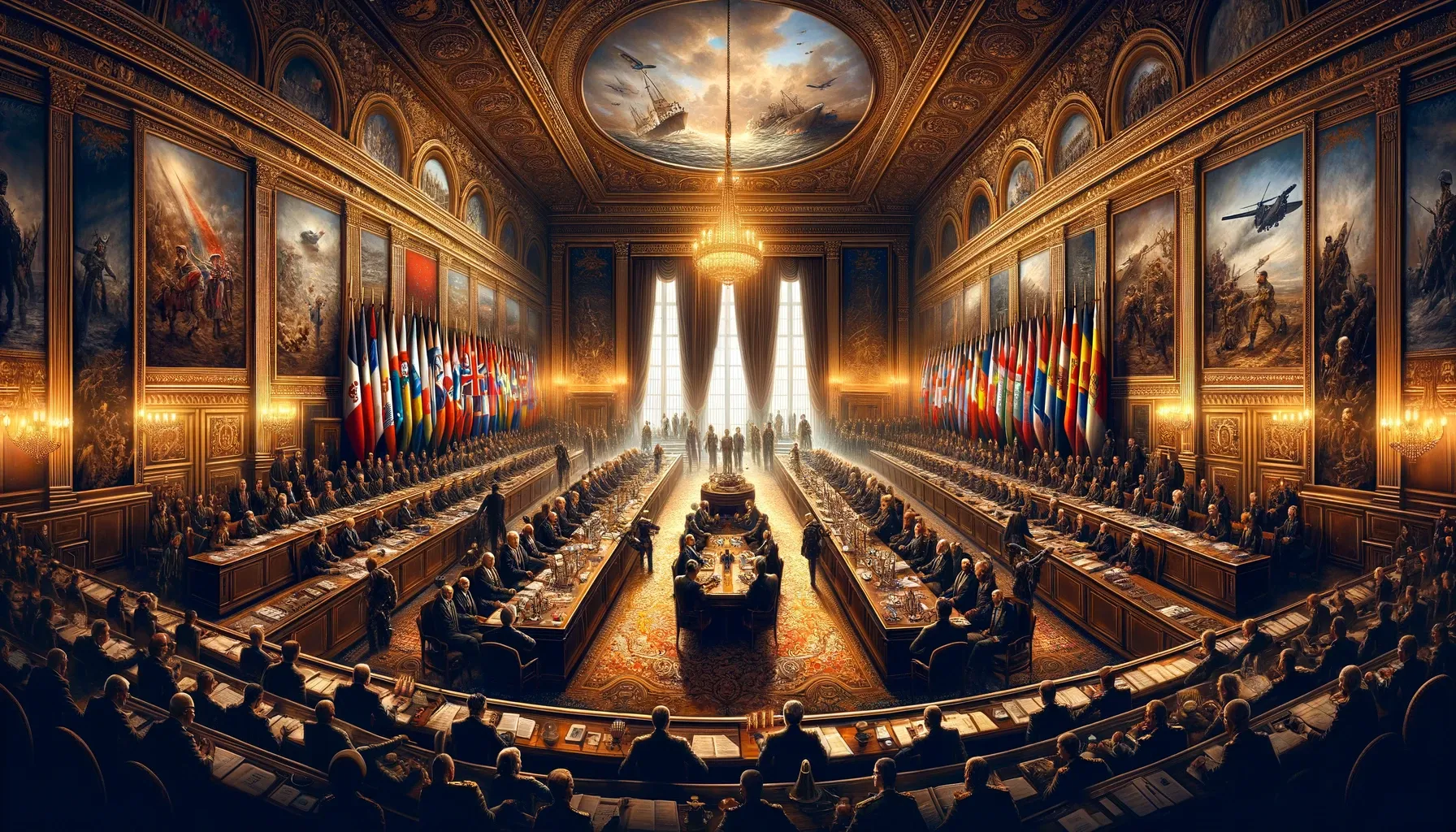Diplomacy in the Shadows: The Art of War as an Extension of Political Will
In the realm of international relations, the adage attributed to Carl von Clausewitz, "War is merely the continuation of politics by other means," serves as a stark reminder of the intricate dance between the pursuit of political objectives and the application of military force. This philosophical exploration seeks
In the realm of international relations, the adage attributed to Carl von Clausewitz, "War is merely the continuation of politics by other means," serves as a stark reminder of the intricate dance between the pursuit of political objectives and the application of military force. This philosophical exploration seeks to unravel the layers beneath this principle, shedding light on the nuanced interplay of diplomacy and martial strategy as instruments wielded by states to assert their will, navigate disputes, and sculpt the geopolitical landscape.
At its core, the concept posits that war, with all its destruction and chaos, is not an isolated phenomenon but a tool within the broader context of political strategy. It suggests that when diplomatic efforts falter or the balance of power shifts, nations may resort to military action to achieve what words and negotiations could not. However, this transition from the boardroom to the battlefield is fraught with complexities, ethical dilemmas, and unforeseen consequences, challenging the very essence of international law and human morality.
The Continuum of Power
The seamless continuum between peace and conflict highlights the fluid nature of state interactions. In this continuum, diplomacy and war exist as two points on the same spectrum of power projection. Diplomacy, characterized by negotiation, alliance-building, and soft power tactics, serves as the preferred avenue for resolving disputes and advancing national interests. Yet, the shadow of military might looms large, acting as both a deterrent and a potential course of action should diplomatic channels prove inadequate.
Strategic Calculus and the Ethics of War
The decision to transition from diplomacy to war is governed by a strategic calculus that weighs the potential gains against the moral and material costs. This calculus is complicated by the ethical considerations of just war theory, which demands a just cause, proportionality, and a reasonable prospect of success. In the contemporary world, where the lines between combatants and civilians blur and the theater of war expands into cyberspace, these ethical considerations become even more paramount, challenging statesmen and military leaders to navigate a labyrinth of moral imperatives.
The Role of International Law
International law, with its conventions and treaties, attempts to regulate the conduct of war and the use of force. However, the effectiveness of these legal frameworks is often contingent upon the willingness of states to adhere to them and the capacity of the international community to enforce compliance. The tension between the sovereign right to pursue national security interests and the collective responsibility to uphold international peace and security encapsulates the dilemma at the heart of the Clausewitzian paradigm.
Conclusion: The Quest for a Durable Peace
In the final analysis, the interplay between diplomacy and war underscores the perpetual quest for a durable peace. The Clausewitzian perspective, while acknowledging the utility of military means, also implicitly advocates for the primacy of political solutions. It is through the meticulous crafting of diplomatic relationships, the strengthening of international institutions, and the relentless pursuit of dialogue and understanding that the specter of war can be diminished.
In navigating the complex terrain of international politics, states must remain cognizant of the profound implications of their choices, striving always to align their actions with the noble aim of fostering a world where diplomacy triumphs over discord, and peace prevails over war.





